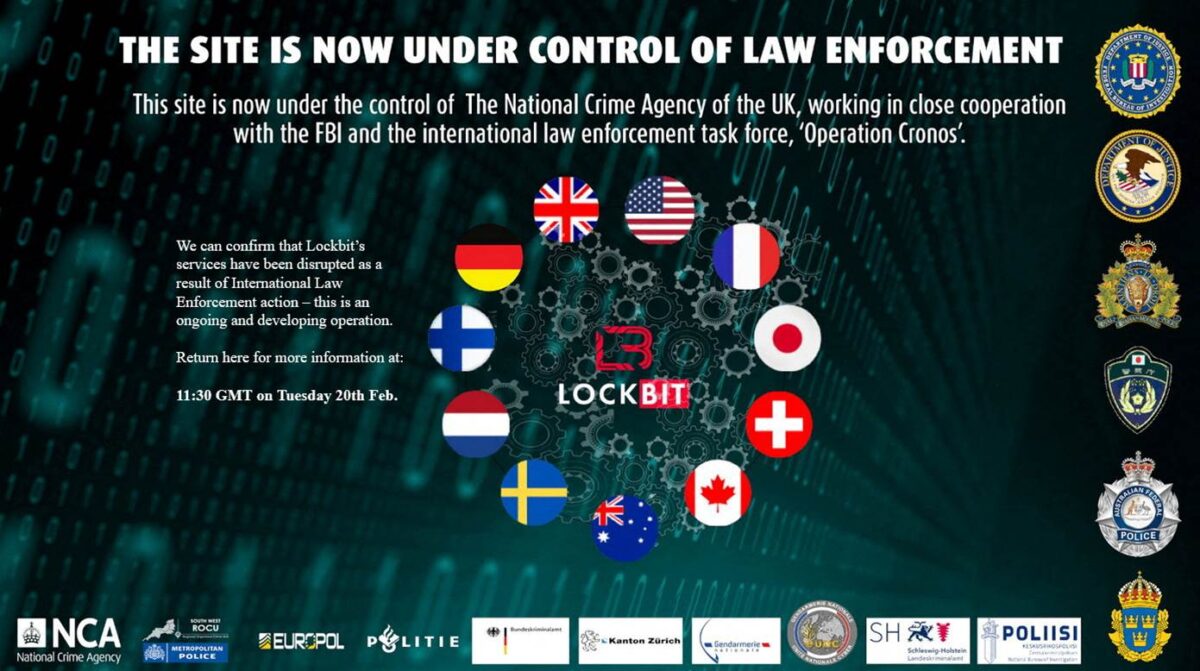“US Officials Indict Person Connected to LockBit Ransomware Group”
We independently review everything we recommend. When you buy through our links, we may earn a commission which is paid directly to our Australia-based writers, editors, and support staff. Thank you for your support!

Law Enforcement Intensifies Action Against LockBit Ransomware Syndicate
Quick Overview
- The United States has charged Rostislav Panev, a dual citizen of Russia and Israel, for his involvement in the LockBit ransomware collective.
- Panev was apprehended in Israel in August 2024 and is currently awaiting extradition to the U.S.
- LockBit ransomware has victimized over 2,500 individuals across more than 120 countries, extorting upwards of $800 million AUD.
- This ransomware syndicate utilized a “ransomware-as-a-service” framework, working with affiliates in executing attacks.
- Recent law enforcement initiatives, including arrests and domain seizures, have markedly disrupted LockBit’s operations.
- Experts assert that these crackdowns are crucial in discouraging ransomware and extortion on a global scale.
Who is Rostislav Panev?
Rostislav Panev, a 51-year-old dual national of Russia and Israel, faces charges from U.S. authorities for his significant participation in the LockBit ransomware syndicate. Panev was arrested in Israel in August 2024 and is pending extradition. According to the U.S. Department of Justice (DOJ), Panev was a developer for LockBit from its founding in 2019 until early 2024, aiding the group in becoming one of the most infamous ransomware organizations worldwide.
The Emergence of LockBit
LockBit made its debut in 2020, with its ransomware software surfacing on Russian-language cybercrime forums. The group functioned under a “ransomware-as-a-service” (RaaS) paradigm, where core developers supplied tools and frameworks to affiliates responsible for the attacks. The syndicate quickly earned a reputation for its effectiveness and scale, targeting more than 2,500 victims in at least 120 nations, including Australia.
The victims of LockBit varied from small enterprises to large corporations, hospitals, educational institutions, and essential infrastructure. The group extorted no less than USD $500 million (AUD $800 million) in ransom, resulting in significant losses in revenue and recovery expenditures.
Law Enforcement Responds
The apprehension of Panev follows a series of successful law enforcement operations against LockBit. In February 2024, Britain’s National Crime Agency, the FBI, and other international entities confiscated several LockBit-related websites. In July 2024, two Russian members of the organization, Ruslan Astamirov and Mikhail Vasiliev, entered guilty pleas, further undermining the syndicate.
Even though LockBit reestablished its presence online after the seizures, the group’s influence within the cybercriminal realm has greatly diminished. Experts, including Jeremy Kennelly, a cybersecurity analyst at Google’s parent company Alphabet, believe these actions have been vital in reducing LockBit’s operations and tarnishing its reputation.
Effect on Cybercrime Dynamics
LockBit’s ransomware-as-a-service model has catalyzed a surge of similar operations, with developers and affiliates sharing the extortion profits. Nonetheless, the recent enforcement actions highlight an escalating international collaboration in the battle against cybercrime. By targeting both the syndicates and their facilitators, law enforcement agencies are conveying a powerful message that ransomware and extortion carry serious repercussions.
While remnants of LockBit might remain, experts suggest that affiliates are likely moving their operations to other ransomware collectives, thereby diluting their overall influence.
Conclusion
The arrest of Rostislav Panev and the coordinated global initiatives against LockBit signify a pivotal moment in the fight against ransomware. With over 2,500 victims and AUD $800 million in extortion revenue, LockBit stood as one of the most prolific ransomware groups in history. However, recent law enforcement activities have substantially disrupted their operations and reduced their stature within the cybercriminal underworld. These developments emphasize the importance of international collaboration in addressing the rising menace of cybercrime.
Q&A: Essential Information About LockBit and the Arrest
Q: Who is Rostislav Panev?
A:
Rostislav Panev, a 51-year-old dual citizen of Russia and Israel, was a principal developer for the LockBit ransomware collective. He was arrested in Israel in August 2024 and is awaiting extradition to the U.S. to face charges.
Q: What is LockBit ransomware?
A:
LockBit is a ransomware organization that operated on a “ransomware-as-a-service” framework, supplying malicious software and infrastructure to affiliates who executed attacks, sharing the profits from extortion with these partners.
Q: How substantial was LockBit’s effect?
A:
LockBit targeted over 2,500 victims across 120 countries, affecting businesses, hospitals, and critical infrastructure. The group extorted at least AUD $800 million, leading to major recovery and revenue losses.
Q: How has law enforcement influenced LockBit?
A:
International law enforcement efforts have disrupted LockBit’s operations through arrests, seizures of websites, and a decline in their activity. These actions have also diminished the group’s credibility within the cybercriminal community.
Q: Are ransomware incidents on the decline?
A:
While ransomware attacks continue to pose a risk, effective crackdowns on entities like LockBit have decreased their frequency and impact. However, many affiliates may transition to other ransomware operations, keeping the threat ongoing.
Q: What implications does this have for Australian organizations?
A:
Australian organizations must stay alert, as ransomware groups often target local businesses and infrastructures. Enhancing cybersecurity protocols and working collaboratively with law enforcement are crucial strategies for minimizing risks.
